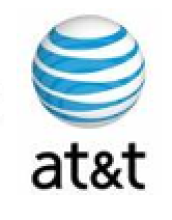AT&T, Others Overcharge Subscribers Based on Secret Bandwidth Meters
Imagine going to a gas station, putting 10 gallons into your car's 12 gallon tank, and driving off only to find your needle only approaches half a tank? This scenario is quite rare because government inspects gas stations to ensure they are not lying about how much gasoline they dispense.
But when it comes to the Internet, we have found measurements of how much data one uses is unregulated, providing no check on massive companies like AT&T and Time Warner Cable. And we are seeing the results -- AT&T is not open about what its limits are or how to tell when one has exceeded them.
Stop The Cap has noted that AT&T has advertised unlimited bandwidth for its DSL/ U-verse product while chiding and charging customers who exceeded certain amounts of monthly usage. Customers were quietly warned and charged $10 for each additional 50 GB over 150 GB for DSL subscribers or 250 GB for U-verse customers. Clearly, "unlimited" has several definitions, depending on whether one is a customer or an ISP.
Complaints have also come in from SuddenLink customers and others. The ISP charged usage based customers for bandwidth usage when they didn't even have power. Simlarly, AT&T customers began to complain about inaccurate meters from the beginning of the program. This from a 2011 DSL Reports story - one of many comments from AT&T customers:
AT&T's data appears to be wholely corrupted. Some days, AT&T will under-report my data usage by as much as 91%. (They said I used 92 meg, my firewall says I used 1.1 Gigs.) Some days, AT&T will over-report my data usage by as much as 4700%. (They said I used 3.8 Gig, dd-wrt says I used 80 meg. And no, this day wasn't anywhere near the day they under-reported.)



